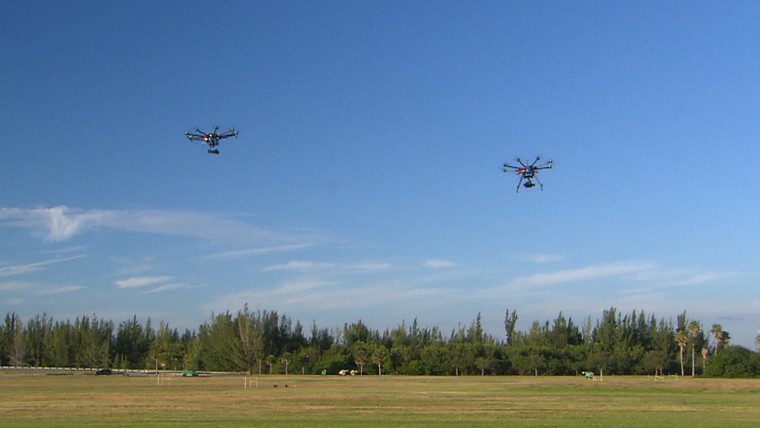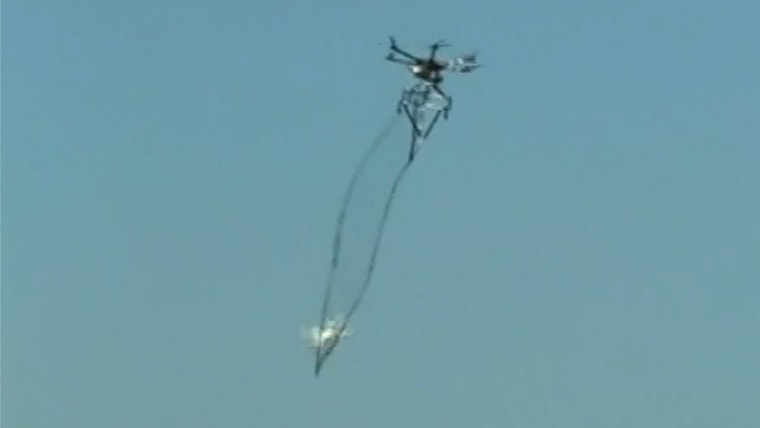The Federal Aviation Administration opened its consumer drone registry this week, a key step in tracking the increasingly popular technology. But as the regulator continues to craft rules for using drones, conflict has arisen over what role state and local governments should have in the process.
More states and cities have recently floated laws for using unmanned aerial systems, or UAS, irking some industry groups and big tech companies who say they complicate FAA regulatory authority. Amazon and Google, among others, have pushed for a quicker resolution of the FAA's rules on commercial use, seeking clearance to use drones for delivery.
As states and localities continue to weigh laws on UAS flight, questions linger about what power they have, and how it will shape airspace over communities moving forward.
"They now have to find an equilibrium between public safety, commercial utilization and privacy," said David Swindell, director of the Center for Urban Innovation at Arizona State University and a drone policy expert.
The FAA, the primary regulator of drones, added a registry to keep track of the devices amid some potentially hazardous flights. The agency said 780 pilots reported "interactions" with drones through August, and firefighters complained about their presence near wildfires this summer.
Amid concerns over misuse in communities and unclear federal rules, more local and state governments have set guidelines for flying UAS. While they vary in nature, many ordinances have aimed to limit flight over private property and potential police use of drones.
The FAA said lawmakers in 45 states have at least considered restrictions on drones this year. Paradise Valley, Arizona, passed an ordinance this month limiting flight on both private and public property. Next-door, the significantly larger Phoenix is considering a similar measure.
More from CNBC: FAA requires toy drone owners to register aircraft
Most lawmakers have cited public safety and privacy concerns in setting laws. The question of whether they have the authority to pass them will likely become crucial when the FAA sets preliminary rules for commercial use, possibly by later this year.
The FAA has claimed authority over airspace down to the ground, and last week issued a fact sheet on when local laws are appropriate. The agency said local governments could set laws related to police obtaining warrants to use a drone, banning voyeurism or barring the attachment of firearms or other weapons.
They asked lawmakers to consult with the FAA before making any law regarding flight altitudes and paths. The agency added that the Department of Transportation would evaluate local and state laws "on a case-by-case basis to ensure that they don't conflict with the FAA's authority."
One of the strongest legal arguments for limiting drone flight over private property comes from the United States v. Causby Supreme Court ruling in 1946. The court found that a farmer could be compensated for value lost when Army aircraft flew over his house, scaring chickens on his farm.
The legality of state and local action may eventually be settled in court, Swindell said. But in the meantime, many industry groups have thrown their weight behind uniform federal regulations.
"There's a concern among many that these regulations are being swayed by commercial interests that want to see these be as favorable as possible to business," he said.
Related: FAA Says More Than 45K People Register Drones in First Two Days
In a statement, Amazon contended that "states and localities must not be allowed to regulate small drones that the FAA has authorized." The tech giant supports uniform federal rules, "given the interstate nature of commercial drone operations."
The Association for Unmanned Vehicle Systems International applauded the FAA's recent clarification on state and local rules. The industry group called for a resolution of the FAA's commercial rules, saying guidelines would eliminate "the need for states and municipalities to fill the void."
"Some recently proposed state and local legislation potentially conflicts with this federal jurisdiction, which would create a complicated patchwork of laws and ordinances and cause more confusion in the process," said AUVSI CEO Brian Wynne in a statement last week.
Google declined to comment on state and local laws.

